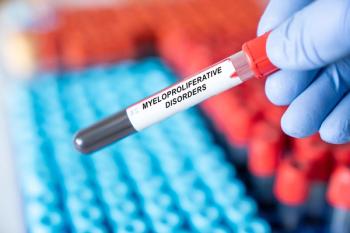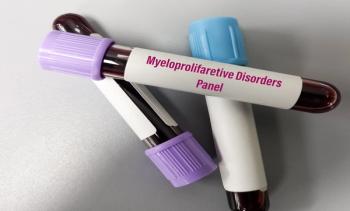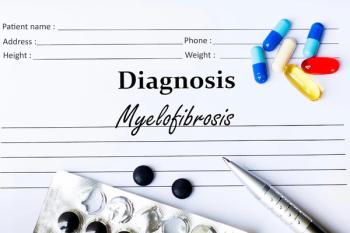
Integrative Medicine Shows Benefits for Patients With MPNs
A recent survey of patients with myeloproliferative neoplasms found integrative medicine interventions improved symptom burden, fatigue, depression, and improved quality of life.
For patients with myeloproliferative neoplasms, integrative medicine (IM) offers a range of benefits,
IM approaches, which work to optimize health, QoL, and clinical outcomes, are increasingly being leveraged by both patients with cancer and cancer care providers and organizations, although there is need for more evidence-based data to guide clinical practice, particularly for hematologic malignancies.
“The treatment of MPNs has revolutionized in recent decades with the approval JAK inhibitor therapy and other targeted therapies, leading to improvements in splenomegaly, symptom burden, and even overall survival,” wrote the researchers. “Despite these advancements, the need for IM interventions to address high symptom burden and poor quality of life remain a large unmet need in the MPN patient population.”
The researchers of the current study disseminated a survey of IM among patients with MPN, with more than 800 respondents. Among the respondents, 338 had essential thrombocythemia, 188 had myelofibrosis, 315 had polycythemia vera, and 17 had other/unspecified MPN. IM interventions ranged widely, with the most common interventions including aerobic activity (51.5%), massage (28.4%), yoga (25.6%), nutrition (25.2%), and strength training (23.8%).
Both aerobic activity and strength training lowered MPN-Symptom Assessment Form (SAF) scores (33.3 vs 39.7 and 34.0 vs 37.7, respectively), indicating lower symptom burden, although they were surprisingly associated with a lower QoL. However, the researchers added the caveat that the latter association may be due to those with lower QoL are more likely to try exercise-based wellness strategies like these.
In a similar pattern, massage and support groups led to higher symptoms burden (MPN SAF-TSS mean score 40.5 vs. 35.3 and 42.3 vs. 36.0, respectively) but were associated with a higher QoL, with the researchers noting that highly symptomatic patients may be more likely to try non-pharmacologic symptom management and social support.
Decreased levels of depression were noted among patients participating in aerobic activity and strength training, as well as yoga. Aerobic activity and strength training also reaped benefits for fatigue, with patients participating in the interventions reporting lower levels of fatigue, while patients participating in massage and breathing techniques noted higher levels of fatigue.
According to the researchers, while most patients participated in some form of IM intervention, “80.2% of patients felt their integrative health needs were not heard by their healthcare provider. This underscores the importance of enhancing integrative therapy communication in our health system.”
The finding, they say, indicates “the need for more integrative medicine practitioners and more robust integration of these practitioners and modalities within standard medical care.”
Reference
Gowin K, Langlais B, Kosiorek H, et al. The SIMM study: survey of integrative medicine in myeloproliferative neoplasms. Cancer Med. Published online November 3, 2020. doi: 10.1002/cam4.3566.
Newsletter
Stay ahead of policy, cost, and value—subscribe to AJMC for expert insights at the intersection of clinical care and health economics.







